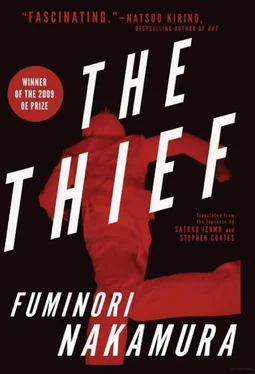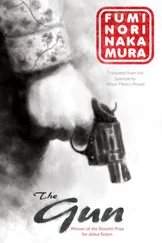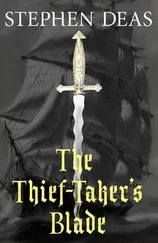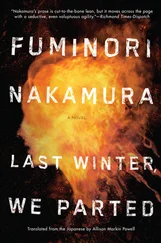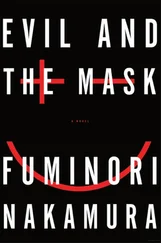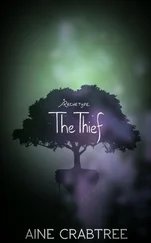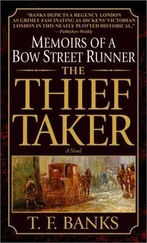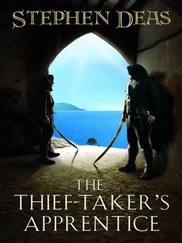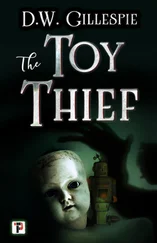“I’m not interested.”
“You’re weird. So was Ishikawa. What is it you want?”
I stayed silent.
“Well, aren’t you going to ask what happened to him?”
He was watching me. My heart started to beat faster.
“Do you know?”
“No,” he said and laughed.
The sunlight overhead was really bothering me.
“But it had something to do with that robbery, I guess. One thing’s for sure. That was spooky. It’s spooky when a big job like that goes off without a hitch. I bet he got into trouble then. I’ll tell you one thing, though. You should get out of Tokyo, especially this area.”
“Why?”
“It looks like they’re up to something again.”
Our eyes met. I wasn’t sure how to respond, so I looked at the ground.
“You should disappear, before you get caught up in it again.”
“What about you?”
“I’ll be OK. In fact, if they are planning something I’ll make a lot of cash. Besides, that’s how I live. It’s too late to worry about saving my own skin.”
He laughed, so I laughed too. As if realizing that he’d talked for too long, he raised his hand lightly and turned at the intersection. In the distance I saw a tall, rich-looking man, but I couldn’t be bothered. The buildings were getting to me, so I went back under the bridge. Murky water had pooled in a discarded take-out container. Somehow it looked unpleasantly warm.
I was lying on my bed unable to sleep. I opened my eyes. The rain was buffeting the thin windows, making an unpleasant rattling noise. A deep bass beat pounded from the apartment above. From time to time it stopped, then started again, over and over. I was wide awake, fully aware of every detail of my ground-floor room. The rain seemed inexorable, falling from the sky to inundate the whole world around me.
The pulsing rhythm overhead stopped, leaving just the sound of the rain. When the music didn’t start again, I figured the guy upstairs had gone to sleep. I felt like I was the only person left in the whole world. I lit a cigarette, then saw that there was a half-finished one still in the ashtray. My room held nothing worth looking at, just a pipe bed and a closet and an ironing board. Synthetic fibers stuck up like stakes from the holes in the frayed tatami mats. I stared at my long fingers, flexing them over and over, opening, closing. I tried to remember when I first realized that I was virtually ambidextrous, but couldn’t pin it down. It felt like I’d been born with it, but also like I gradually grew that way.
The rain kept on falling as if it was determined not to let me go outside. I contemplated the vastness of the clouds in the sky, and the place I was in at that moment. Like an act of defiance, I grabbed my cigarettes, pulled on my socks, opened the flimsy wooden door and stepped outside. The rain soaked the rusty poles of the apartment building, the bicycle lying on its side like a corpse, making the cold air even colder.
I rounded the corner by a leaning traffic sign, walked past a factory with rusting steps, then turned left at the T-junction at the end of a line of row houses. A car was coming towards me, picking up speed. I guessed that it would give way first and sure enough, when I feinted towards it, it swerved timidly. Many telephone poles away the rain was lashing a gigantic pylon. I looked away, but of course I knew it was there even if I wasn’t watching it.
When I got to the station the downpour was drenching a solitary taxi with no passengers. The driver was looking straight ahead listlessly, eyes still, staring into space. I climbed the stairs and closed my umbrella. A homeless man, lying there out of the rain and cold, was looking in my direction. He seemed right at home, as though there was supposed to be a bum here at this hour. Something about his eyes reminded me of Ishikawa and I felt uneasy, but his face and age were wrong. He wasn’t actually looking at me. He was gazing fixedly at a point just behind me as I walked, as if there was something there. I lit a smoke to take my mind off him, crossed over to the other side of the tracks and down the dilapidated steps.
In a convenience store I bought some more cigarettes and a can of coffee. When I handed over the money the clerk bellowed, “Thank you very much!” like he was insane. The cash was what I’d taken from the pervert the day before, but its previous owners were unknown. I thought about how this banknote had witnessed a moment of each one of those people’s lives. Maybe it had been at the scene of a murder, then passed from the murderer to a shopkeeper somewhere, then to a good person somewhere else.
When I left the store the great, fat clouds seemed to be hovering overhead, and I felt like I was being coated with countless drops of rain. My heart started to beat faster and I flexed my fingers in my pockets. I imagined calling a cab, getting out in some busy area and sliding my fingers into the people’s pockets there — planting myself in the middle of the crowd, one wallet after another, my hands moving as swiftly and precisely as possible. The rain kept falling and my pulse wouldn’t settle. I thought the only thing for it was to go downtown, but I tried to compose myself. I climbed the stairs once more, telling myself that the persistent footsteps behind me were just echoes, and lit another cigarette. The homeless man was nowhere to be seen. My heart beating dully, heavily, I went through the station and downstairs again. A man in a raincoat was getting saturated at the roundabout in front of me and the white headlights of a passing car lit up the drizzle, illuminating the sharp, golden droplets. The rain seemed to hold a thousand needles. I spotted the sleeping figure of the homeless guy but there was no sign of the man in the raincoat.
I stopped myself from looking over my shoulder, thinking that I shouldn’t have come out in the first place. I could sense the pylon, even though I couldn’t see it from here. I felt the never-ending rain. I was conscious of the enormous clouds and of myself walking beneath them.
“If you steal a hundred thousand from someone who’s worth a billion, it’s almost like you’ve taken nothing.”
Ishikawa often used to say things like that. He loved stealing from the rich, and I would just go along with it. He’d take their wallets, but he didn’t really care about the money and spent most of it immediately.
“But it’s still wrong,” I said.
He nodded, but he grinned briefly before continuing the conversation. We were chatting in a narrow booth in our usual run-down bar. The owner was a former gangster, though he never said much about his past. His arms and legs were thin and his body twisted, giving him a slightly lopsided appearance. I couldn’t tell his age.
“But obviously if there was no concept of ownership there’d be no concept of stealing, would there? As long as there’s one starving child in the world, all property is theft.”
“We can’t use that to excuse what we do, though.”
“I’m not trying to excuse it. I just can’t stand people who are totally convinced that they’re saints.”
Ishikawa once stole a lot of money with a really simple trick. He heard about this old man who used to go to a private club with a large bundle of cash. The man was the director of some religious organization and he liked showing off his money to young women. After every assembly, to work off some of his exaltation, he’d take his staff to this club to have sex with the girls there. He was scrawny and bug-eyed, with a habit of showing his gums when he laughed. Ishikawa bought a pouch exactly the same as the one the old guy carried his cash in, waited for him to turn up at the club, and as they were getting out of the car he bumped into the secretary who was carrying the bag. He shoved the pouch inside his coat and dropped the fake one, which was stuffed with wads of paper. The old man picked it up, barking at an apologetic Ishikawa before disappearing into the grey building with his assistants. The bag contained ten million yen.
Читать дальше
